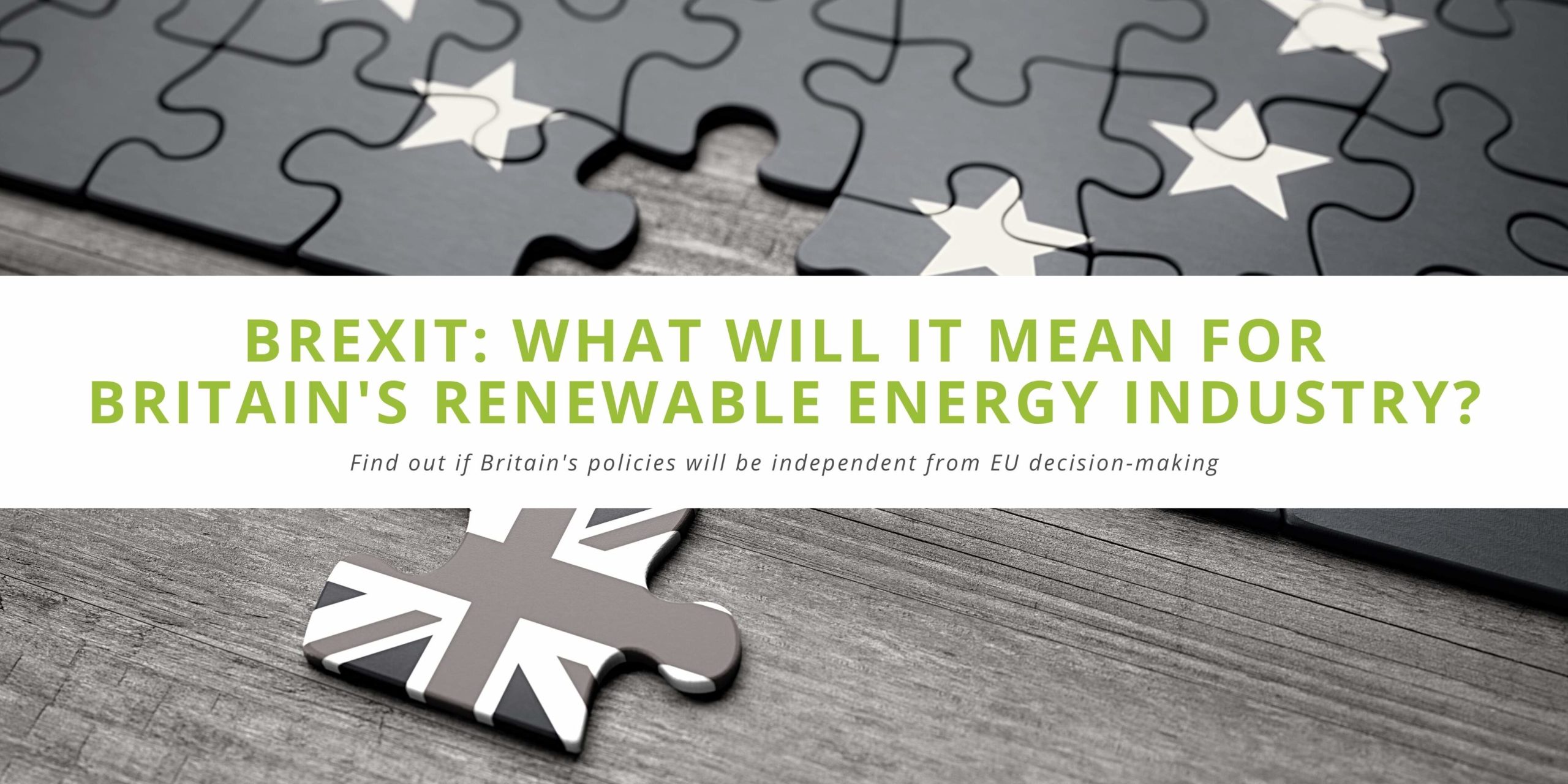
Brexit: What Will It Mean For Britain’s Renewable Energy Industry?
Britain has generally remained independent in renewable energy policy-making, and that doesn’t seem likely to change after Brexit.
Read time: 2 minutes
Brexit is upon us…
After years of uncertainty and negotiations, and with the Brexit transition period finally coming to an end on 31st December 2020, in many ways Britain seems to be in exactly the same position as four years ago regarding its relationship with the European Union.
However, one thing that we can predict fairly safely is Britain’s renewable energy industry policies. As the island nation has historically remained independent from EU regulations and influence when it comes to the renewable energy industry, this means that not a lot will change once Brexit becomes official.

Credit: Financial Times
EU Renewable Energy Policies
The EU’s 2001 RES-E legislation on renewable energy and climate change – promoting renewable energy use in electricity generation – set the tone throughout Europe, but did not actually impose targets on individual member states. As a result, Britain has not been under the control of the EU in terms of renewable energy policies.
On the back of the 2001 RES-E legislation, but still acting independently, Britain introduced the Renewables Obligation and, later, the Feed-in-Tariff (FIT) – a government programme designed to promote an increase in small-scale renewable and low-carbon electricity generation technologies. The FIT scheme requires participating licensed electricity suppliers to make payments on both generation and export from eligible installations.
What Does Brexit Mean for Britain and Boris Johnson’s Ten-Point Plan?
All of this means that Britain will continue to act independently when it comes to renewable energy industry standards. Perhaps Britain will be inspired by EU policies, as they were with the FIT, but Britain’s journey towards clean energy will ultimately remain unaffected by Brexit.
The only factor that could be negatively impacted by Brexit is the loss of access to the EU’s energy market in the event of a no deal. This would be very costly for energy traders (around €6bn, says Bruegel – a Brussels-based think tank) and electricity markets are the most vulnerable as Britain imports a lot of electricity. However, the British government has said that they are ready to continue energy trading even in a no-deal scenario.
With all of this being said, Boris Johnson recently unveiled Britain’s Ten-Point Plan for renewable energy, and Brexit should not affect the promises he made. These include the support of up to 60,000 jobs in the offshore wind sector and the acceleration of the transition to electric vehicles by 2030. Find out more about Britain’s plans for renewable energy after Brexit in our blog about Boris Johnson’s Ten-Point Plan.
